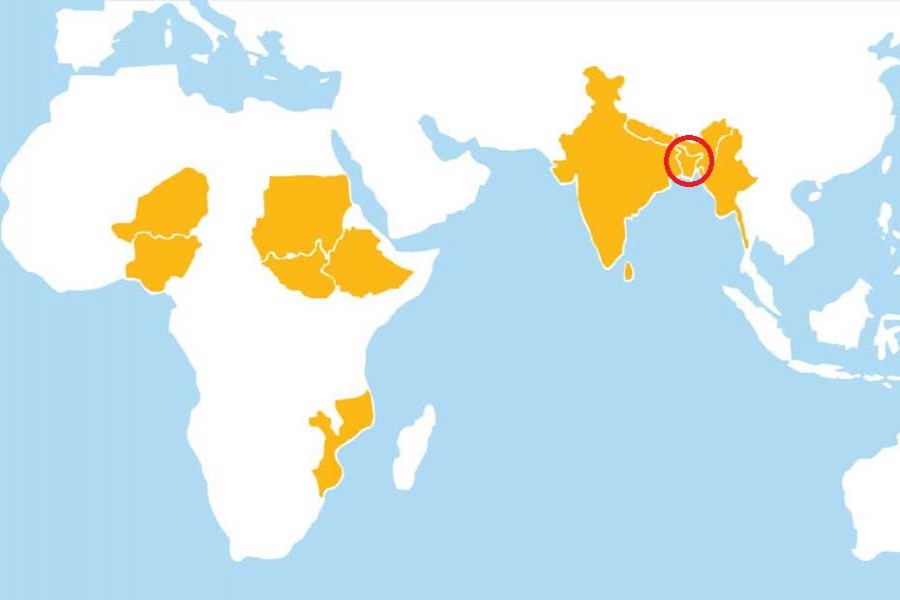A UN body that deals with international public health has prioritised 22 countries, including Bangladesh, where action is needed to detect and treat leprosy early enough.
The World Health Organisation (WHO) observed that people affected by leprosy in those countries suffer discrimination and lack of access to medical care.
Newly appointed UN human rights expert specialising in the disease Alice Cruz has warned about the situation, citing latest statistics that show over 200,000 new cases a year, reports UNB.
Leprosy remains a neglected disease, with the highest number of cases in India, Brazil and Indonesia.
Democratic Republic of the Congo, Ethiopia, Madagascar, Mozambique, Myanmar, Nepal, Nigeria and the Philippines are also among the WHO identified 22 priority countries where action is needed, according to a statement UNB received from Geneva on Thursday.
Figures for 2016 show that 214,783 new cases of leprosy were reported, including 12,437 where people had suffered serious disabilities.
"This level of serious disability is alarming and completely unnecessary," said Special Rapporteur Alice Cruz, in a statement to mark World Leprosy Day that falls on January 28.
She said no one with leprosy needs to be left with disabilities and the disease can be easily cured with multidrug therapy if it is detected and treated early enough. "Left untreated, it can cause severe immunological reactions that lead to disability and chronic pain."
The expert said the fact that this is still happening in 2018 shows that there are delays in diagnosis and lack of access to high-quality treatment. "Children are among those suffering unnecessarily."
Cruz said discrimination was perpetuating people's unnecessary suffering and it was essential to tackle the root causes.
"Too many people with leprosy remain trapped in a never-ending cycle of discrimination and disability," she said.
The UN expert said States must address the vicious circle of discrimination, exclusion and disability.
"They must act on their human rights obligations to tackle leprosy-related discrimination and stigma, including by ending discriminatory laws on segregation, immigration, marriage, vote, public transportation, employment and housing which remain on the statute books in some countries."
The UN expert praised the ongoing work by the worldwide leprosy community to raise public awareness and press for action by States.
Leprosy, also known as Hansen's disease, is a chronic infectious disease caused by the bacillus Mycobacterium leprae that mainly affects the skin and peripheral nerves.


